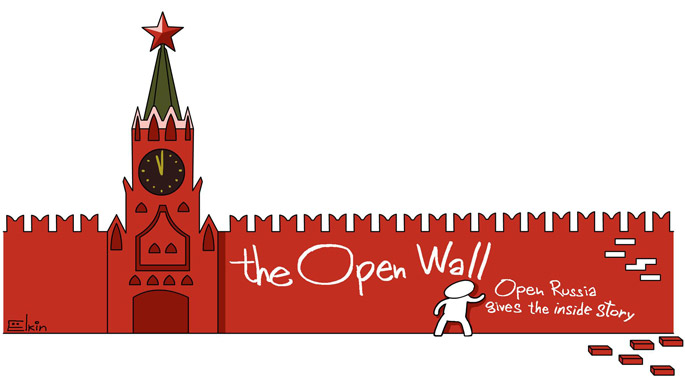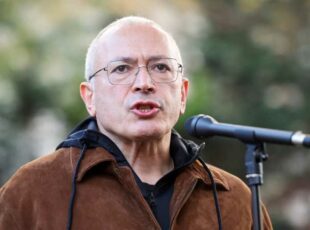Putinomics
Putinomics
Ilya Klishin
Putinomics is the name given to a new type of economic theory – where nothing adds up.

For a long time now, the President of Russia has been convincingly feigning a total lack of interest in the mundanity of things like politics and economics. Rather, Vladimir Putin is intent on making history, his efforts geared not towards serving some electorate or other, but directly towards a textbook that shall be gratefully penned a century hence by generations yet unborn. The possibility that they might be anything but grateful probably isn’t even being considered.
All the stranger, then, that in recent months Putin seems to have again concerned himself with the economy. He’d previously turned over the reins of control to the shadow government of Dmitry Medvedev and his ministers, but they aren’t coping all too well, so Zeus has deigned to descend anew from Mount Olympus, hurling thunderbolts and presidential decrees.
Of critical importance here is the appointment of former finance minister Alexei Kudrin – who occupies a unique niche in today’s political pantheon, commanding as he does the trust of both the Kremlin and the opposition – to the post of deputy chair of the president’s Economic Council. Why only deputy chair? Because the president’s Council is headed by the president himself …
But should we take this to mean that Putin has somehow surrendered, under the pressure of Western sanctions (and those annoying “liberals” festering in his administration). and called upon his old friend to instigate inevitable reforms? Hardly.
In late May, the Economic Council met for the first time in its new configuration – that is, under the leadership of Putin and Kudrin. Kudrin spoke; so did Minister of Economic Development Alexei Ulyukayev, business ombudsman Boris Titov, and presidential adviser Sergei Glazyev (notorious for his proposals to abandon the dollar as a reserve currency and “print as much money as the country needs”).
It all had the air of some medieval bride-show – a parade of young women before the tsar; only instead of titillating Putin with a series of beautiful maidens, Kudrin presented him with a number of economic plans to overcome the crisis. It later emerged that the president had had a strident disagreement with his new deputy: when Kudrin proposed reducing the “geopolitical tensions” that characterise Russia’s current relations with the West, Putin retorted that “we weren’t the ones that started it” (read: the Ukrainian revolution of 2014 was a Western-orchestrated coup).
According to our insiders, however, the purpose of the whole affair was to mollify the economists, and make sure no one was left feeling abandoned or forgotten, for in actual fact Putin has already made his choice, and will genuinely listen to what Kudrin has to say.
Or rather, he will try to listen. The problem lies in the fact that Kudrin’s programme is predicated on institutional reforms. Otherwise put, he’s saying that it’s senseless to attract investors and improve Russia’s business environment in the absence of fair elections, a just judiciary and a free press. In a word, politics must come first, and we can talk about an economic boom later.
Putin, for his part, quite likes the bit about the economic boom, but as for the first part of Kudrin’s programme – well, that seems a rather pointless concession. He thinks there really is some magic spell to conjure up the recipe for prosperity and well-being, without bringing in any real-world reforms. And Putin is convinced that Kudrin – playing Merlin to Putin’s Arthur – knows this recipe, only for some reason or other he’s trying to mix a dash of liberal reform into the concoction. He managed to put it into action successfully enough prior to 2011 – and so what if oil prices were higher back then?
So, no matter how many times the Economic Council may meet, no matter how many conversations Putin may have with Kudrin, there simply aren’t going to be any reforms. Putin will never kick-start political change while he’s in power – after all, he doesn’t want to appear weak in that far-off history textbook – and nothing else is possible without political change. Russia exhausted its potential for growth in the first decade of this century; and we can’t rule out the possibility that at some point Putin will tire of the endless, fruitless meetings, and opt instead for Putinomics – “print as much money as the country needs,” for example.




